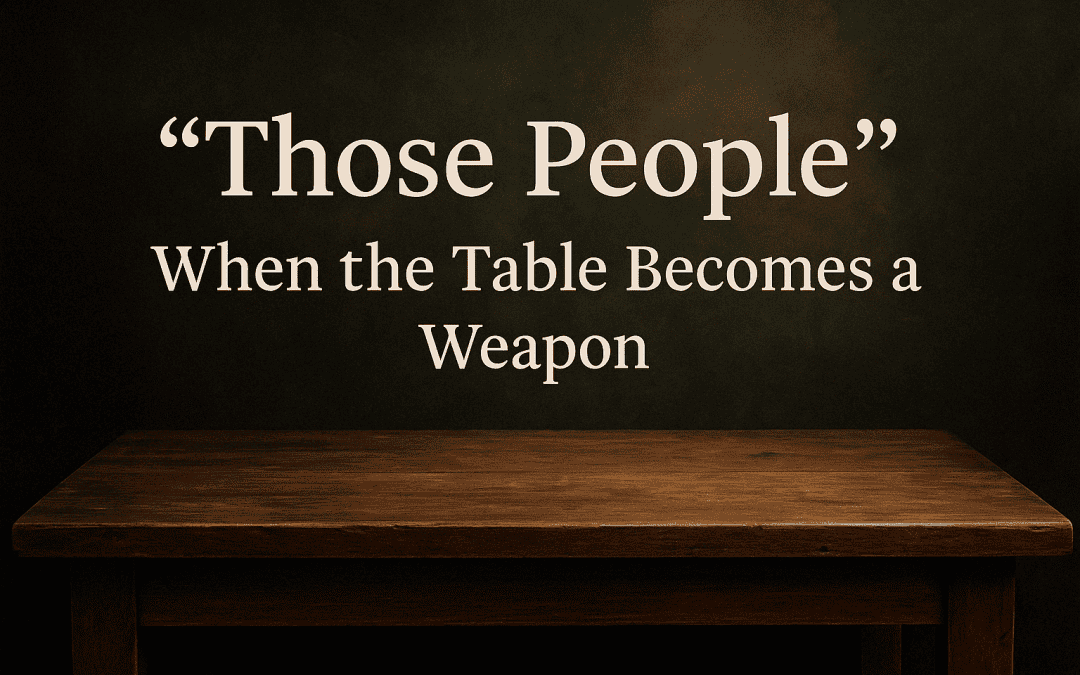Last night, I attended a Holy Thursday service where a female bishop delivered the message. At one point, she said:
“I didn’t understand… how Jesus could invite and welcome those people to His table.”
It wasn’t immediately clear who she meant. At first, I thought she might be referring to sinners, like the tax collectors and prostitutes that Jesus dined with. But soon it became clear, “those people” were Christians who support a particular U.S. president and his immigration enforcement policies. In other words, believers who lean politically conservative.
Let that sink in: She questioned Jesus’ welcome to fellow believers because of their political views.
The Lord’s Table Is Sacred Ground—Not a Political Litmus Test
The table of Christ is not an endorsement of anyone’s politics; it’s a declaration of His death (1 Corinthians 11:26), a remembrance of the New Covenant sealed in His blood (Luke 22:20), and a call to examine ourselves before God (1 Corinthians 11:28). It is not our table to redefine or politicize.
Jesus dined with sinners, but He also broke bread with Pharisees, tax collectors, political zealots, and even Judas. The dividing line in His ministry was never political; it was spiritual: repentance and faith.
To say, “I can’t understand how Jesus would welcome those people” is to say, “I know better than Jesus whom He should invite.” That’s not humility. That’s judgment dressed in virtue.
Unity in Christ ≠ Uniformity in Politics
Scripture teaches that we are one body with many members (1 Corinthians 12:12-27). Our unity is in Christ, not in our political affiliations or voting patterns. Yes, Christians must be shaped by Scripture, and that should inform every area of life, including political convictions. But when the communion table is treated as a place to shame or exclude those who differ politically, we’ve lost the gospel.
Jesus prayed, “that they may be one, just as We are one” (John 17:22). That oneness is forged not by agreement on immigration policy, but by shared faith in the crucified and risen Christ.
Repentance Is Required—But for the Right Reasons
The irony is that the very table Jesus invites us to is the place where we come precisely because we are unworthy. We don’t come because our politics are righteous. We come because Jesus is. The real danger isn’t in welcoming people we politically disagree with; it’s in turning the table of grace into a platform for moral superiority.
If we must repent of anything, let it be the pride that says, “I belong at this table, but you don’t.”
Closing Thoughts:
Jesus calls us to something far deeper than culture wars and partisan divides. The early church gathered Jew and Gentile, slave and free, zealot and tax collector—all made one in Christ.
Let’s be cautious not to exclude whom Christ includes.

